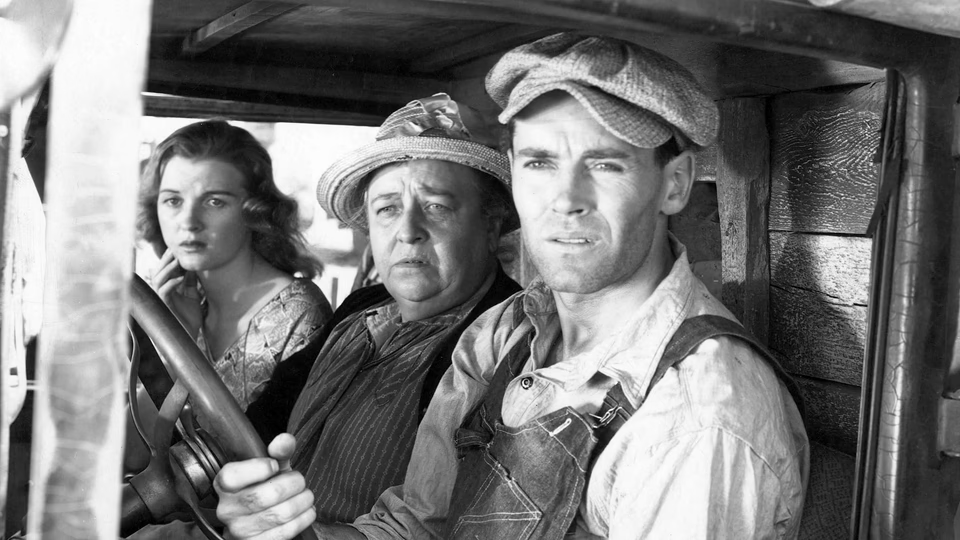The Grapes of Wrath

Fresh out of prison, a man (Henry Fonda) rejoins his sharecropper family in Oklahoma, only to find them forced out of their homes and preparing to travel to California in search of work.
The Grapes of Wrath shouldn’t work. Hollywood never gets this kind of story right. It’s either too sappy, too manipulative, or too artificial. What starts out as honest and straightforward always devolves into emotional spectacle by the third act.
But not here.
Director John Ford, screenwriter Nunnally Johnson, and producer Darryl Zanuck deliver an honest adaptation of John Steinbeck’s novel that stands by the strength of its story, avoiding all the melodramatic pitfalls, and, in doing so, transforms Henry Fonda into the face of the Great Depression.
It’s not perfect, but it’s damn close. Sure, it’s a little talky, and at times just a tad preachy, but for the most part the film feels like an honest window into the life of America’s forgotten masses during one of their darkest times. The casting is perfect, with Henry Fonda playing the flawed and frustrated everyman that would later become so associated with him during his career, Jane Darwell as his mother and the family’s heart and soul, and John Carradine as a disillusioned preacher along for the ride. There’s no glamour here, you can see the weathered years on each of the performer’s faces.
The Grapes of Wrath runs just a few minutes over two hours and that length feels just about perfect. It’s a hard film to dislike and worth a look from any film fan.